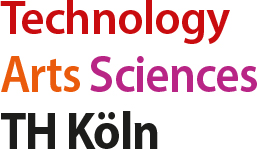The MOPTA conference (Modeling and Optimization: Theory and Applications, https://coral.ise.lehigh.edu/mopta2025/) has been around for many years, since 2001 to be precise. It usually takes place in America, but this year, 2025, European and American scientists met in the middle, so to speak, because it took place in the Azores in June this year. In June...
Presenting our research at the World Conference on XAI
After having participated in its debut last year, it was a special pleasure to visit the second edition of The World Conference on Explainable Artificial Intelligence (xAI2024). The conference was a full immersion into all aspects of explainable AI. The keynote speech by Prof. Fosca Giannotti about hybrid decision-making and the two panel discussions on...
Dataninja Retreat 2023
From September 6th to September 9th we held our last annual retreat of the Dataninja research training group in Krefeld. Alongside our invited speaker's talk (Dr. Alessandro Fabris from Max Planck Institute for Security and Privacy) about algorithmic fairness, each PhD candidate from the Dataninja projects presented their progress and current investigations. In my contribution...
Article Published in Special Issue of "Algorithms"
We are delighted to announce that our article “Iterative Oblique Decision Trees Deliver Explainable RL Models” was accepted and is now part of the special issue “Advancements in Reinforcement Learning Algorithms” in the MDPI journal Algorithms (impact factor 2.2, CiteScore 3.7) . Explainability in AI and RL (known as XAI and XRL) becomes increasingly important....
AI in Nuclear Power Plant Simulation: Steinmüller Engineering Award for Niklas Fabig
The operation of nuclear power plants (NPPs) is one of the most safety-critical tasks in industry. Prior to using AI methods in this area, it should be thoroughly investigated and evaluated via simulations, whether AI can learn (e.g.´, by reinforcment learning, RL) to power up and shut down a nuclear reactor and how well such...
Researchers from TH Köln present at international conference LOD 2022
We are pleased to announce that we will present our research on explainable reinforcement learning at the 8th Annual Conference on machine Learning, Optimization and Data science (LOD). Starting with its first edition in 2015, the LOD is an established international and interdisciplinary forum for research and discussion of Deep Learning, Optimization, Big Data, and...
Dataninja.nrw Inauguration on May, 3rd, 16:00
We are happy to announce the dataninja.nrw inauguration event that takes place virtually on Monday, May, 3rd, 16-18. Our research group (RL)^3 at TH Köln is part of the AI graduate school dataninja.nrw with a PhD tandem together with Ruhr University Bochum. Please see the attached PDF dataninja_inauguration_05_03 for all the details and the programme of...
Dissertation Price TH Köln 2020 for Samineh Bagheri
We are happy to announce that Samineh Bagheri won the Dissertation Price 2020 of TH Köln for her PhD thesis. Her thesis “Self-Adjusting Surrogate-Assisted Optimization Techniques for Expensive Constrained Black Box Problems” deals with state-of-the art optimization algorithms supported by RBF surrogate models. The award ceremony took place online - as usual in these times...
Deep Learning and Reinforcement Learning at BIOMA'2020
We are happy to announce that the CIOP group of TH Köln participated with two papers and two talks at the 9th International Conference BIOMA'2020 (Bioinspired Optimization Methods and Applications), which took place November 2020, 19th-20th, and was this year a completely online event: "Reinforcement Learning for N-Player Games: The Importance of Final Adaptation" by...
TH Köln takes part in AI Graduate College Data-NInJA
The State of North Rhine-Westphalia provides a grant for the AI Graduate College Data-NInJA („Trustworthy AI for Seamless Problem Solving: Next Generation Intelligence Joins Robust Data Analysis“), coordinated by Prof. Barbara Hammer, University Bielefeld. The grant consists of seven PhD tandems, which were selected out of 37 applications for this grant by an expert jury. TH...
